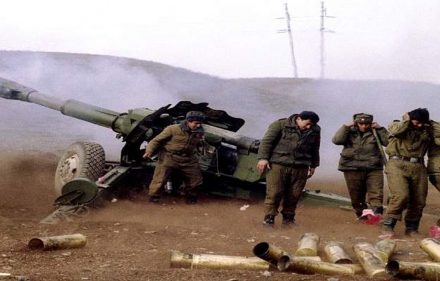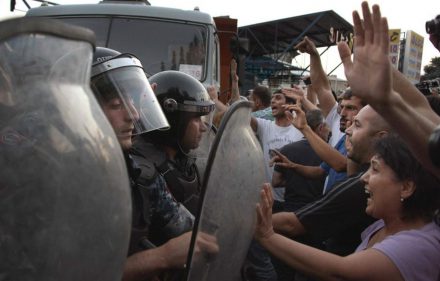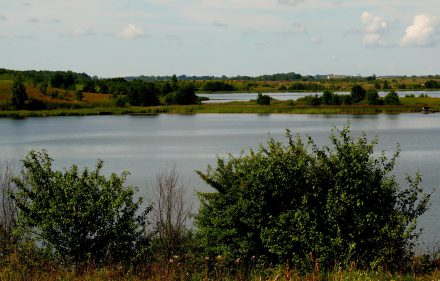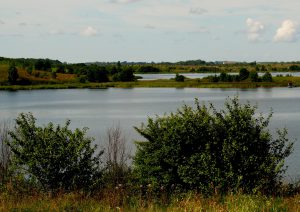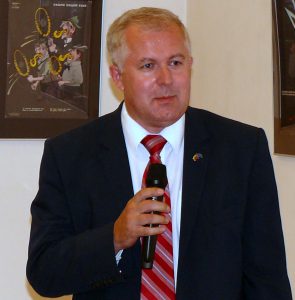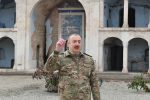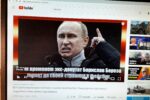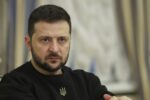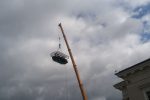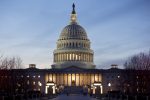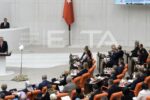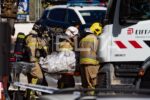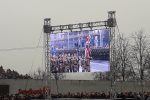Arūnas Spraunius
„Slaptai.lt“ portale prieš kurį laiką publikuotas laiškas Armėnijos prezidentui Seržui Sargsyanui, kurį 2017-ųjų paskutinėmis gruodžio dienomis parašė ir per žiniasklaidą paskelbė (svarbi aplinkybė) įtakingas jo tautietis, Rusijoje gyvenantis bei šios valstybės pilietybę turintis armėnas verslininkas Levonas Markosas (http://www.lragir.am/index/rus/0/right/view/60061).
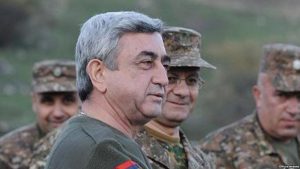
Neperpasakojant detaliai viso laiško turinio (lietuviškai galima perskaityti adresu – (https://slaptai.lt/gintaras-visockas-keletas-patarimu-armenijai-ir-armenijos-draugams/) tik konstatuotina, kad jo autorius išvardija prezidento S.Sargsyano prašymu savo nuo 2000 metų pradžios nuveiktus darbus bei pradėtus projektus, gelbėjant Armėnijos ekonomiką, kuriuos auditoriai iš Maskvos įvertino 300 milijonų JAV dolerių suma. L.Markoso įsitikinimu, tie projektai galėjo duoti rimtą impulsą Armėnijos ekonomikai, deja, galų gale investuotojas patyrė nuostolių ir buvo priverstas aiškintis su teismo antstoliais. Laiško autoriui Armėnijoje iškelta baudžiamoji byla bei paskelbta tarptautinė paieška. L.Markosas prezidentą S.Sargsyaną kaltina apgaule, jog „Tėvynės gelbėjimo“ dingstimi šis „įbrukęs“ jam bankrutavusį „Credit-Yerevan“ banką, ši afera prasukta dalyvaujant prezidento šeimai ir kitiems aukštiems pareigūnams. L.Markosas yra įsitikinęs, kad anksčiau ar vėliau teisingumas dėl apgautų armėnų verslininkų, gviešiantis jų pinigų, nugalės, tik retoriškai klausia, ar tai gali nutikti šaliai vadovaujant S.Sargsyanui.
Šią istoriją galima vertinti įvairiai – tarkime, kaip „tik“ verslo subjektų aiškinimąsi (nors adresatas – aukščiausias Armėnijos valstybės pareigūnas), posovietinėje erdvėje tokių istorijų kaip netrūko, taip ir netrūksta. Vis dėlto, kiek ir kodėl ši istorija tipiška, juo labiau, kad L.Markosas teigia, jog į jį kreipiasi daug tėvynainių, kurie su kartėliu pasakoja apie savivalę Armėnijoje, kur sukonstruota korupcinė sistema?
Keletas istorijų. Kaukazo politikos bei naujienų interneto puslapis „jam-news.net“ praėjusių metų vasario 24-ąją informavo apie Armėnijos nacionalinio saugumo tarnybos (NST) įvykdytas operacijas, kurių metu demaskuotas už palankų sprendimą baudžiamojoje byloje maždaug 8 tūkstančių dolerių reikalavęs teisėjas, įgaliojimus viršijęs policininkas, visaip „tempęs“ sprendimą dėl piliečio pamesto karinio bilieto atkūrimo, mat tikėjosi iš šio 200 dolerių, suklastotus diplomus išdavusios trys aukštosios mokyklos ir areštas Darbo bei socialinių klausimų ministerijos 12-ai pareigūnų, kurie už invalidumo grupės suteikimą ėmė maždaug 40-80 dolerių kyšius. Vienas suimtųjų Armenas Sogoyanas vadovavo medicininės-socialinės ekspertizės centrui, kurio ankstesnis vadovas Mikaelis Vanianas 2012-ųjų spalį atleistas iš darbo už tą patį. Taigi galima kalbėti apie korupcinių tradicijų „perimamumą“.
Vis dėlto tai smulkmė fone tokių istorijų kaip armėnų spaudoje aprašyti buvusio finansų ministro Gagiko Khachatryano (pasak armėnų spaudos, neprarandančio vilties grįžti į vykdomąją vakdžią) šeimos turtai, kai jo broliai politikui kylant karjeros laiptais pirko nekilnojamojo turto JAV už dešimtis milijonų dolerių. Pasak Korupcijos organizuoto nusikalstamumo tyrimų centro (https://www.occrp.org/ru/investigations/6395-sons-of-yerevan-minister-sell-hollywood-mansion), NST pernai ėmėsi publikacijose paskebtų faktų tyrimo, bet po savaitės jį nutraukė, nesikreipusi į Amerikos teisėsaugą pagalbos ir nepaaiškinusi bylos nutraukimo motyvų.
Savo ruožtu S.Markosas laiške nurodo, jog pastaraisiais metais apiplėšti 34 stambūs armėnų verslininkai, naudojantis išbandyta schema: iš pradžių iš žmonių „Tėvynės labui“ išviliojami dideli pinigai, paskui jiems surezgami kaltinimai, siekiant nušalinti nuo verslo ir išstumti iš Armėnijos, o „parduotus“ objektus pasisavinti kaip ir sumokėtus už juos pinigus. Esą taip prezidentas S.Sarkisianas susikrovė milijoninius turtus skurstančioje Armėnijoje.
Intereno leidinys „oc-media.org“ praėjusių metų lapkričio 24-ąją informavo, kaip valdančiųjų politikų figūravimas verslo struktūrose užtikrina jų nebaudžiamumą. Tarkime, prekybos centrų tinklo „Yerevan City“, kurių vienas savininkų yra valdančiosios Respublikonų partijos deputatas Samvelas Aleksanyanas, kasininkės dirba praktiškai be atostogų, jų mėnesinis uždarbis neviršija 165 JAV dolerių.
Dar vieną Armėnijos sostinės prekybos tinklą SAS valdo irgi deputatas respublikonas Artakas Sarkisianas, pastarasis į Armėnijos nacionalinį susirinkimą (parlamentą) praėjusių metų balandį vykusiuose rinkimuose pateko pagal partinį sąrašą. Leidinys „Hayastan24“ balandžio 13-ąją paskelbė koncerno „SAS Group“ susirinkimo garso įrašą, kur nežinomas asmuo reikalauja iš darbuotojų sąrašų rinkėjų, kuriuos šie įsipareigoja palenkti balsuoti už koncerno bosą, o suorganizavusiems daugiausia balsų žada atostogas Paryžiuje.
Po publikacijos kilus triukšmui generalinė prokuratūra pasiuntė įrašą Specialiąjai tyrimų grupei, ši balandžio 19 dieną užvedė baudžiamąją bylą, tačiau rugsėjo 8-ąją ją nutraukė, argumentavusi sprendimą nusikaltimo sudėties nebuvimu.
Armėnijos antikorupcinių programų centro vadovo Varuzhano Oktaniano vertinimu, kova su korupcija jo šalyje tebus šou, kol atsakomybėn nebus patraukti aukščiausi pareigūnai, ypač turint galvoje aplinkybę, kad korupciniai nusikaltimai valdžios struktūrose kartojasi. Tačiau tam reikia politinės valios, kurios kol kas nėra. Valdžiai tai – ne pirmaeilė problema, ji korupcijos teikiamomis galimybėmis tebesinaudoja.
Buvusio Armėnijos ministro pirmininko Hoviko Abrahamyano Kovos su korupcija tarybos įsteigimą 2015-ųjų vasarį lydėjo nemenkas visuomeninis rezonansas, mat į jos sudėtį įtraukti aukšti valstybės pareigūnai (politinė opozicija bei visuomeninės organizacijos deleguoti atstovus į Tarybą atsisakė), sprendžiant iš jų turto deklaracijų, patys prisidėjo prie korupcinių procesų. Tarkime, tuometinis premjeras bei finansų ministras yra doleriniai milijonieriai, jų šeimos valdo daugybę pelningų kompanijų.
Todėl ekspertai kovą su korupcija vertina kaip pakankamai dirbtinę. Armėnijos teisininkų asociacijos pirmininkas Karenas Zadoyanas susiklosčiusioje situacijoje net įžvelgia pavojų šalies nacionaliniam saugumui. Korupcijos grėsmę praėjusių metų vasario 2-ąją skelbdamas metinę ataskaitą pažymėjo ir Amerikos ambasadorius Armėnijoje Richardas P. Millsas. Diplomatas kritikavo su JAV tarptautinio vystymosi agentūros (USAID) parama įsteigtą Kovos su korupcija tarybą, nurodęs, kad šiai per porą veiklos metų JAV skyrė vos 2,5 proc. numatytų lėšų dėl veiklos neefektyvumo. R.P. Millsas taip pat perspėjo, jog tokia padėtis gali pakenkti investicijoms į Armėnijos ekonomiką.
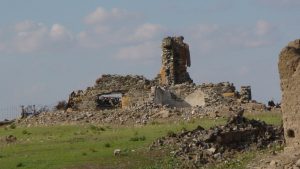
2015 metų birželio 25-ąją paskelbtoje JAV valstybės departamento ataskaitoje apie žmogaus teises pasaulyje nurodoma, jog daugiausia pažeidimų Armėnijoje 2014 metais padaryta dėl sisteminės korupcijos, neskaidrios vyriausybės veiklos ir ribotos teismų nepriklausomybės.
Gruodžio 6-ąją svarstant 2018 metų valstybės biudžeto projektą Nacionaliniame susirinkime parlamentinės komisijos europinės integracijos klausimais pirmininkė Naira Zohrabyan pareiškė, jog, nors valdžia ne kartą deklaravo taikysianti Singapūro patirtį kovojant su korupcija, ši tebeklesti, todėl Armėnijoje nėra tinkamų sąlygų užsienio investicijoms, skirtingai nuo to paties Singapūro. Interento leidinys „eadaily.com“ jau šių metų sausio 9-ąją citavo ekonomistą, opozicinio Armėnijos nacionalinio judėjimo politiką Ovanesą Igityaną, pasak kurio, korupcinės schemos lemia pirmo būtinumo prekių bei komunalinių paslaugų kainas šalyje. Armėnijos piliečiai moka daugiau negu Kaukazo regiono ir net Europos gyventojai. Ekonomistas irgi nurodė, jog korupcinė sudedamoji daro šalį labai nepatrauklią užsienio investicijoms, todėl jos pastaraisiais metais mažėja. Šį procesą lydi kapitalo traukimasis, nes armėnų verslininkai nenori investuoti į savo šalies ekonomiką.
Čia jau atsiremiame į geopolitinį-vertybinį pasirinkimą – šalis siekia apsivalymo per skaidrias demokratines procedūras ar lieka prie Rusijos prezidento Vladimiro Putino „rankinės politikos“ stiliaus. Kaip žinia, oficialusis Jerevanas vienu metu mėgina „sėdėti“ ant dviejų – ES rytų partnerystės bei Maskvos diriguojamos Nepriklausomų valstybių sąjungos (NVS) – geopolitinių „kėdžių“, nors daugelis savo šaliai civilizuotos raidos linkinčių armėnų bei šalies draugų perspėja apie tokio pasirinkimo aklavietę.
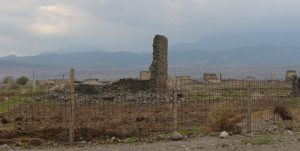
JAV Vidurio Azijos ir Kaukazo intituto direktorius bei Stokholmo saugumo politikos bei vystymosi intituto vienas steigėjų Svantė Cornellas žurnale „The American Interest” paskelbtoje publikacijoje „Kunkuliuojantis Kaukazas“ (2017 05 10) priminė, kad Armėnija ilgą laiką mėgino derinti Rusijos paramą gynybos srityje (glaustis po jos „saugumo skėčiu“, siekdama išlaikyti užgrobtą Kalnų Karabachą) su viltimis suartėti su Vakarais. Galų gale tai lėmė šalies ekonomikos nuosmukį ir milžinišką skolą Rusijai, kurią Maskva mielai „atleido“ mainais už Armėnijos ekonomikos strateginių sektorių kontrolę.
Jerevano siekį formuoti ryšius su JAV ir ES (2010 metais pradėjo derybas dėl asocijuotos narystės) sužlugdė augantys Maskvos ir ES nesutarimai, 2013-ųjų rugsėjį prezidentas S.Sargsyanas paskelbė apie šalies atsisakymą siekti narystės ES Rusijos dominuojamos Eurazijos ekonominės sąjungos (EES) naudai.
Tai negalėjo neturėti įtakos Armėnijos vidaus politikai, susijusiai ir su demokratija bei žmogaus teisėmis. Armėnijos Helsinkio komiteto pirmininko Avetiko Ishkhanyano, programos „Armėnijos saugumo politikos aptarimo gerinimas“ bei Armėnijos tarptautinių santykių bei saugumo instituto pranešimas „Žmogaus teisių padėtis Armėnijoje: sisteminės problemos senos ir naujos konstitucijų šviesoje“ (http://www.lragir.am/index/rus/0/right/view/46591 2016 01 28) pradedama nuo konstatacijos, jog dažniausiai į Armėnijos piliečių teises kėsinasi vykdomoji valdžia, ypač jos galios struktūros. Tokiomis aplinkybėmis žmogų gina ne įstatymas, bet tarnybinis statusas bei finansinės galimybės (čia pateikta pavyzdžių, kad dalis parlamento narių bei ministrų tuo pat metu yra ir verslininkai). Armėnijoje valdžia reiškia ne tik valdymą, bet ir pelningą verslą.
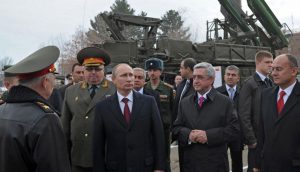
Prastėjančią situaciją žmogaus teisių srityje konstatavo ir dalyviai 2016 metų spalio 20-ąją Vašingtone surengto Armėnijos politikos temai skirto forumo, kuriame pranešimus skaitė Armėnijos Helsinkio komiteto, „Transparency International“, „Human Rights Watch“, Nacionalinio demokratijos paramos fondo, Amerikos advokatų asociacijos, Georgo Washingtono universiteto teisės fakulteto atstovai. Pagrindinėmis priežastimis vėlgi nurodytos jau sisteminis korupcijos pobūdis, verslo bei politikos elitų susiliejimas, nepriklausomos teismų sistemos nebuvimas ir stipri priklausomybė nuo autoritarinės Rusijos.
Praėjusį rugžjūtį viešėdamas Armėnijoje JAV politologas, filosofas, žurnalo „The American Interest“ redakcinės kolegijos pirmininkas bei garsiojo esė „Istorijos pabaiga“ autorius Francis Fukuyama interviu „The Armenian interest“ prastą valstybinių institucijų kokybę dėl korupcijos įvardijo viena didžiausių Armėnijos problemų. Glaudūs ryšiai su Maskva nepadeda spręsti problemos, mat Rusijoje galioja lygiai tokia pat sistema. Fr.Fukuyamos vertinimu, diegiant civilizuotas vertybes ir balansuojant Maskvos įtaką, svarų vaidmenį galėtų vaidinti diaspora.
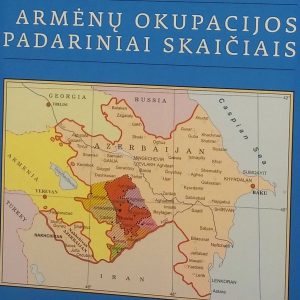
Filosofas pateikė Estijos pavyzdį – daugelis estų griuvus Berlyno sienai patraukė į JAV ir Vakarų Europą, ten išsimokslino, padarė sėkmingas karjeras ir grįžo, kai Estijos visuomenė tapo demokratiška. Ir Armėnijai gausi jos diaspora gali tapti žmogiško kapitalo bei žinių šaltiniu.
Bet tam vis tiek reikia stimulo. Armėnų dienraštis „Haykakan Zhamanak“ šių metų sausio 28-oisos numeryje, svarstydamas apie valstybės brandą, nurodė, kad tai galėtų būti laisvi rinkimai, sumažėjęs korupcijos bei emigracijos mastas, konkurencinga ekonomika, nuo verslo atribota valdininkija ir nors šiek tiek teisingumą vykdantys teismai. Tikra pereinamojo periodo klasika.
Deja, ir „Haykakan Zhamanak“ pripažįsta, jog beveik 30 metų nepriklausomybę turinčiai Armėnijai kol kas šio egzamino išlaikyti nepavyksta, nes valdžiai šalies branda neatrodo svarbiausias klausimas.
2018.03.19; 08:08

